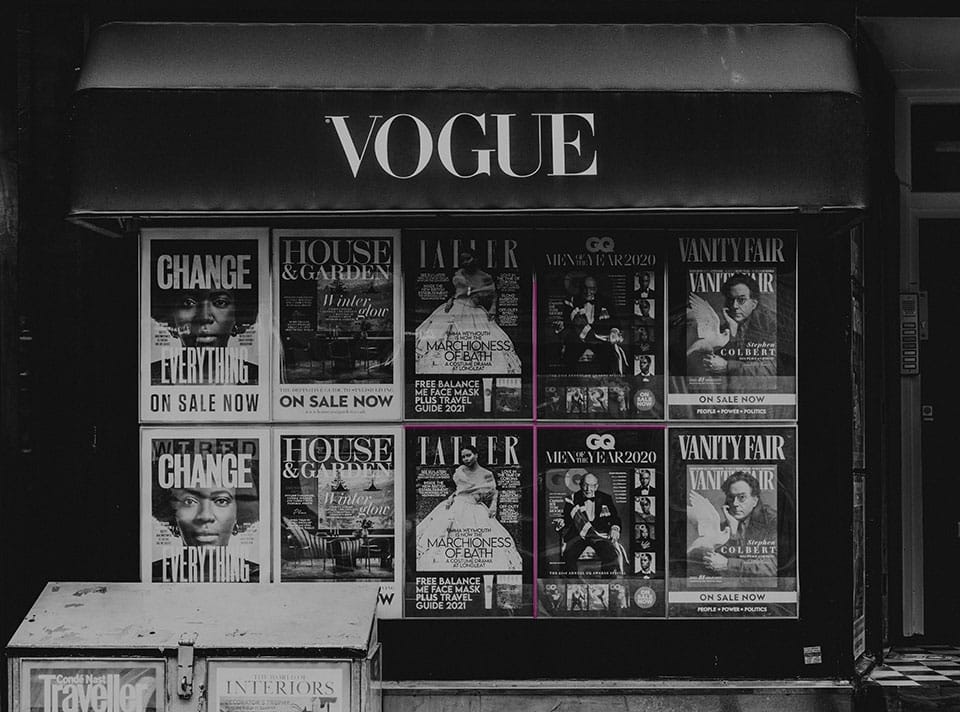It's a curious thing how casually we lace the secular with the sacred. "Vogue is the fashion Bible," we say, nodding solemnly, as though Anna Wintour handed commandments down from a mountaintop runway. There is something tongue-in-cheek in the phrase, yes, but also something deeper. We may not mean "Bible" in the scriptural sense, but the word bears weight. It means authority, a kind of liturgical finality. "It is written," we imply. "Thus shall it be worn."
Our language is peppered with these liturgies. Someone releases a "gospel of wellness" or is dubbed a "high priestess of pop." We talk about "converts" to veganism, "pilgrimages" to record shops, and people being "excommunicated" from Twitter. We canonize celebrities and idolize athletes. We "worship" brands and style icons, albeit with a wink.
But the wink does not cancel the worship.
It is as though our souls, deprived of incense and psalms, go seeking them elsewhere, finding rituals in skincare routines and confessions in comment sections. And what is a holy relic, if not a signed first edition or a vintage leather jacket worn by someone once kissed by fame?
Even time itself is ordained. "Black Friday" feels like a secular Sabbath; the Apple keynote, a solemn assembly. Midnight movie releases demand fasting, vigil, communion with strangers. And yes, we drive on a parkway and park on a driveway, just as we pray with our eyes closed to things we see clearly, and look wide-eyed at miracles we don't recognize as such.
None of this is accidental.
There is a hunger in us, not just for beauty or truth or even certainty, but for meaning. We want a story larger than our own, a chorus that doesn't end with the last commercial break. So we borrow the language of faith, even if we claim to have none. We speak of "callings," "redemption arcs," "martyrs," "sacrifices," and "salvation," often without batting an eye. It is evidence of a deeper grammar, one that remembers how to pray even if the mouth has forgotten.
And yet, this doesn't cheapen religion. On the contrary, it reveals how deeply embedded the sacred is in us. We wouldn't reach for such language if we didn't believe it still meant something. We wouldn't call Vogue a Bible if we didn't suspect, even dimly, that somewhere, there must be one.
So let us be whimsical, yes, but let us also be watchful. When the world calls something a gospel, ask: what is the good news? When it crowns something sacred, ask: what is it pointing toward?
Because it could that the greatest paradox of all is not the driveway or the parkway, but that even in our most secular moments, we cannot help but echo the holy.
Who changed the truth of God into a lie, and worshipped and served the creature more than the Creator, who is blessed for ever. Amen.
—Romans 1:25
Share this article
The link has been copied!

